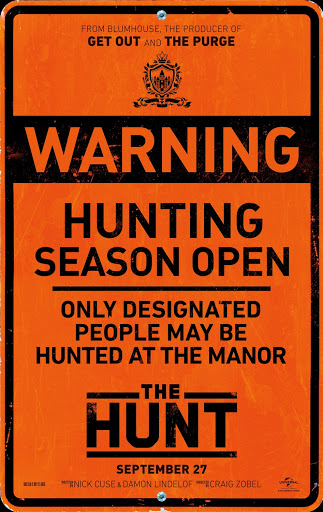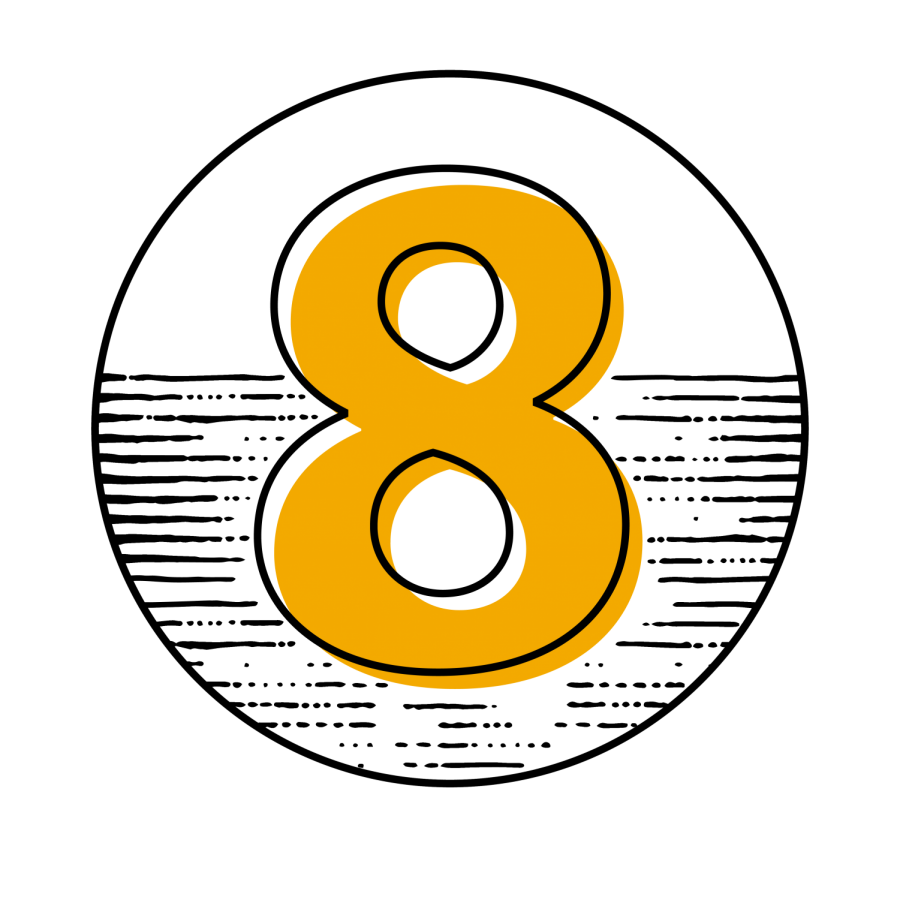Review: “The Hunt” provides a satirical critique on modern-day political discourse

Courtesy of Universal Pictures
April 7, 2020
There are three major sociological perspectives, which are lenses through which academics study human society. These lenses are structural-functional, symbolic interaction and social conflict. And Craig Zobel’s “The Hunt” is all about social conflict.
Like any good comedic social commentary, Zobel uses satire to point out the absurdities of our human society, turning how we normally see American social conflict on its head.
“The Hunt” starts off following the POV of a few different hunters and their victims. First, we follow Glenn Howerton’s character, who witnesses a murder on a plane in the opening scene, and then we wake up with Emma Roberts’ character, gagged in the middle of the woods. We’re with her as she confusingly finds others in the same predicament, and we think we’re going to follow her through the entire movie, but she’s killed off five minutes in.
Same with Ike Barinholtz’s character. We think we’re going to follow him until the end of “The Hunt,” à la Katniss Everdeen in “The Hunger Games,” but he dies around eight minutes into his introduction.
This constant rotation of main characters through the first act left viewers unsure who would die and when throughout, and it kept them on the edge of their seats.
But, the movie’s nonstop action comes secondary to its social commentary.
The premise of the film is liberal elites kidnapping rednecks and conservatives and then hunting them down for sport.
But the thesis of the film is that the trivial issues that divide us aren’t worth dehumanizing each other for.
Social conflict theory has historically been studied under the lens of the “Haves” and the “Have-Nots.” There are those who own the means of production and channels of communication and those who do not. And that disparity means that there will always be conflict between the Haves and the Have-Nots, theoretically speaking.
And theoretically speaking, it would be in the Haves’ best interests to tell the Have-Nots that their fight isn’t with the Haves, but with each other.
So now, we live in a society where “political division” isn’t between the rich and the poor, but between this made-up spectrum of “left versus right.” And when someone stands on the other side of you on a particular set of issues, then they’re the enemy, not the Haves, theoretically speaking.
The self-destructive ridiculousness of this paradigm is highlighted throughout the entire film, often in hilarious ways. For instance, when an old white couple start to feel remorse for killing three of the rednecks, the wife talks her husband out of it by justifying that “He was a monster. He probably uses the ‘n-word’,” only for the old white couple to get into an argument about whether it was okay to use “Black” or “African-American.”
This is a great example of when “The Hunt” uses comedy to highlight the absurdities of this paradigmatic thinking. Because this old white couple knows whether its okay to use “Black” or “African-American,” they are on the correct side of the societal struggle, and those who are on the other side of this issue are on the wrong side of the struggle. Therefore, the old white couple’s killings of the conservative rednecks are justified.
(Another great example of when a movie has done this well is when the white dad that kidnaps black people in “Get Out” portrays himself as a nice, not racist guy by saying that he would’ve voted for Obama for a third term if he could.)
These absurdities within our modern view of social conflict, that the Have-Nots — who stand on opposite sides of you on very specific issues — are the enemy, are what Zobel plays with the entire film.
This movie transcends agenda and forces us to look at how we’re treating our fellow American without dignity or respect because we see “political division” as “left versus right,” and not the Haves vs the Have-Nots.
In my opinion, the reason Americans struggle to see past political division is because the owners of the channels of communication don’t want Americans to see past “left versus right” division. It’s extremely profitable for the machine to play up partisan hackery and keep the Have-Nots angry at the each other. So we use words like “snowflakes” and “elites” or the “deplorables” and “rednecks” that keep us at an emotional distance from one another, and it’s dehumanizing. But it works great for keeping the machine turning and shifting the blame away from the bourgeoisie.
And that’s why I love this movie. It not only illustrates the nonsensical nature of manufactured political division, but also highlights an exaggerated version of the consequences of what will happen if we keep playing into that manufactured political division like we have been — we will kill each other if we do.








